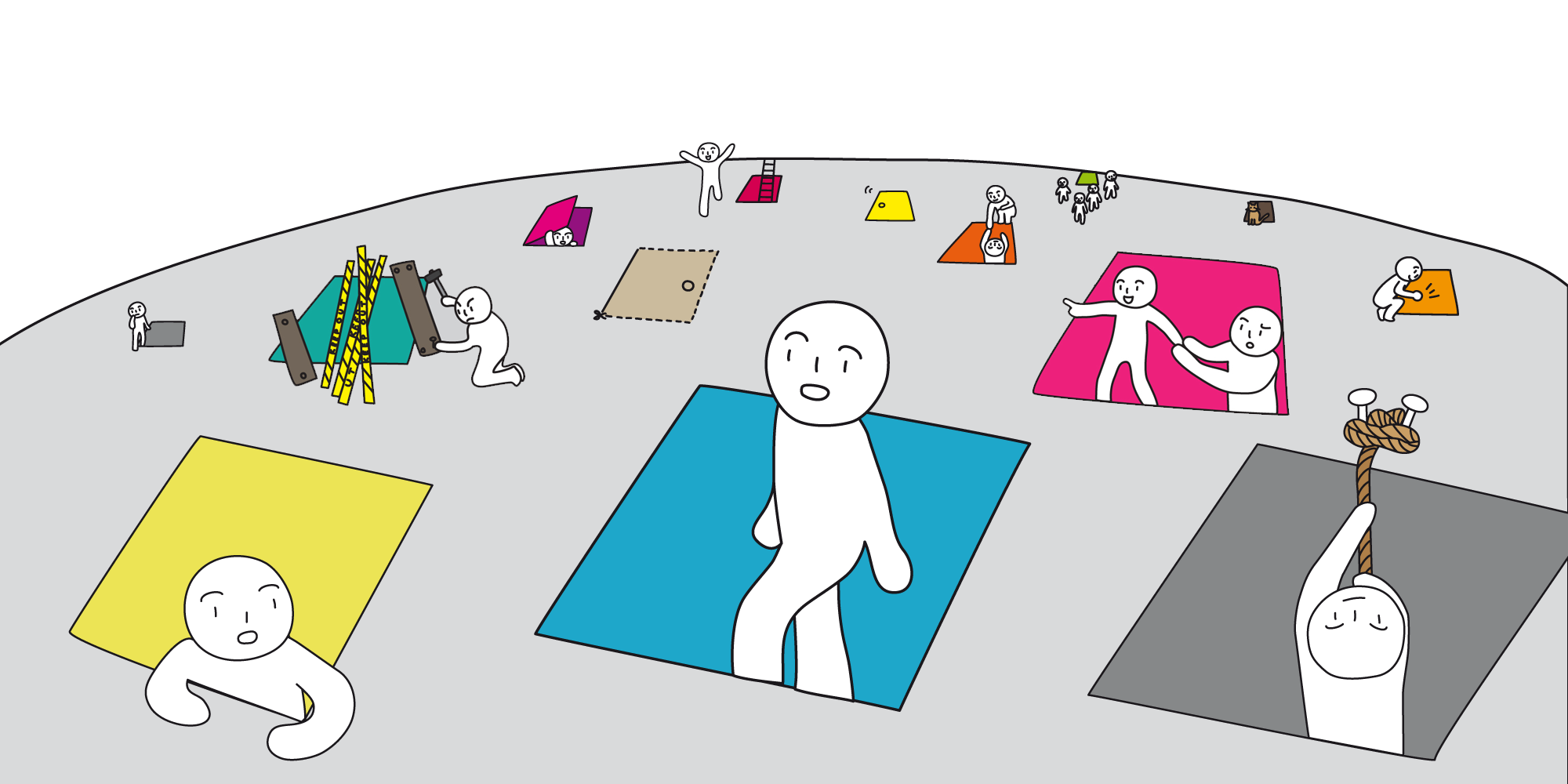Location
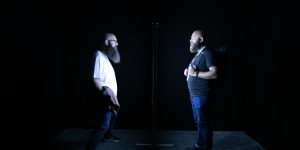
Alter Ego (Version II)
Moritz Wehrmann (DE)
Alter Ego questions the mimetic inter-relationship between two persons. It creates a mental conflict of self-localization, a feeling of self-loss and a feeling of empathy at the same time. The work is foundation for a cooperative with neurophysiological researchers, e.g. with Prof. Alain Berthoz of at Collège de France in Paris. It plays an important role in the research areas of self-other perception and mechanisms of sympathy and empathy research and their disorders, e.g. schizophrenia and autism.
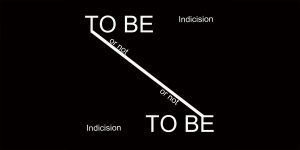
To Be Or Not To Be
Hui Shan (CN)
This project explores our relationship with daily-use AI consumer electronic products. It challenges the design techniques used to make AI products more ‘reliable’ and ‘comfortable’ from the consumer’s point of view. Three AI products have been re-aestheticised from an unheimlich (uncanny) perspective. By making the audience experiment with the ‘Anti-Alexa Experience,’ this project aims to promote socio-technical knowledge and introduce critical thinking towards daily AI products and services.

CAMPUS Exhibition
Every year since 2002, Ars Electronica and the University of Art and Design Linz have hosted an exhibition by artists associated with an international higher-education institution whose curriculum takes an innovative approach to teaching media art and media culture. Part of Campus’s mission is to enable the presentation of young, local media artists and their work with international exposure.
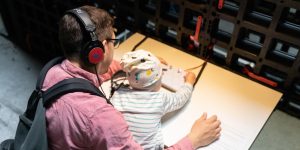
Tickle
The Center for Haptic Audio Interaction Research (CHAIR) (DE)
The Tickle is an acoustic interface for sound. It’s designed as the missing input device for physical modeling synthesis. Vibrations are captured on the surface and fed into digital resonators. It responds naturally to hitting or scratching, even bowing on the edge, making the interaction embodied, intuitive, and intimate.

Community Parcours: Farsi
This tour will take you through the POSTCITY free of charge in Farsi language.
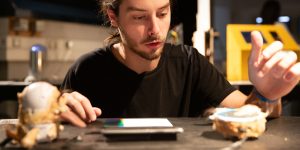
Das ‘Smart’ Unheimliche // The Smart Uncanny
Carlos Orti Roig (ES)
This project explores our relationship with daily-use AI consumer electronic products. It challenges the design techniques used to make AI products more ‘reliable’ and ‘comfortable’ from the consumer’s point of view. Three AI products have been re-aestheticised from an unheimlich (uncanny) perspective. By making the audience experiment with the ‘Anti-Alexa Experience,’ this project aims to promote socio-technical knowledge and introduce critical thinking towards daily AI products and services.
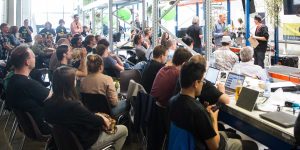
Knowledge Engine Co-Creation Workshop
Linz Center of Mechatronics GmbH (AT)
This event brings experts from the Festival, technology, art and business together. In a Co-creation workshop, participants will explore knowledge engines and topics related to the Festival.

The Messy Shape of Problems – Past, Present and Future Perspectives of Design
Academic Design Network Austria
Designers have to face an increasingly complex field of global challenges necessitating great sensitivity for relevant questions, adequate approaches and tools to develop sustainable solutions. How can design education convey the required skills and perspectives to cope with this dramatic rise in complexity? And how do technological advances shape the future of design?
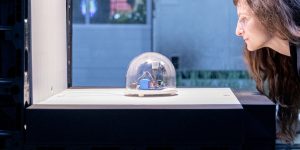
Maschine, die auf Gott wartet
Hannes Waldschütz (DE)
The Maschine, die auf Gott wartet (“Machine that waits for God”) is part of a series of three “waiting machines.” They were activated in Bremen on October 24, 2007, at 6:07 p.m. From this point in time the three machines had been in operation, the Maschine, die auf Gott wartet is still waiting. It’s a microelectronic circuit, built and programmed in order to constantly inquire about the expected event: God must give a signal via a God sensor. An integrated backup power supply guarantees failure-free and uninterrupted functioning.
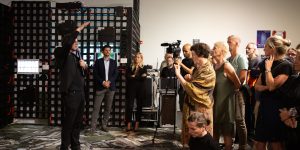
ARS and the CITY
A retrospective of the activity and impact of Ars Electronica in, with and for Linz: Ars Electronica’s art, media and participation projects in public space – from 1979 to the present day.
